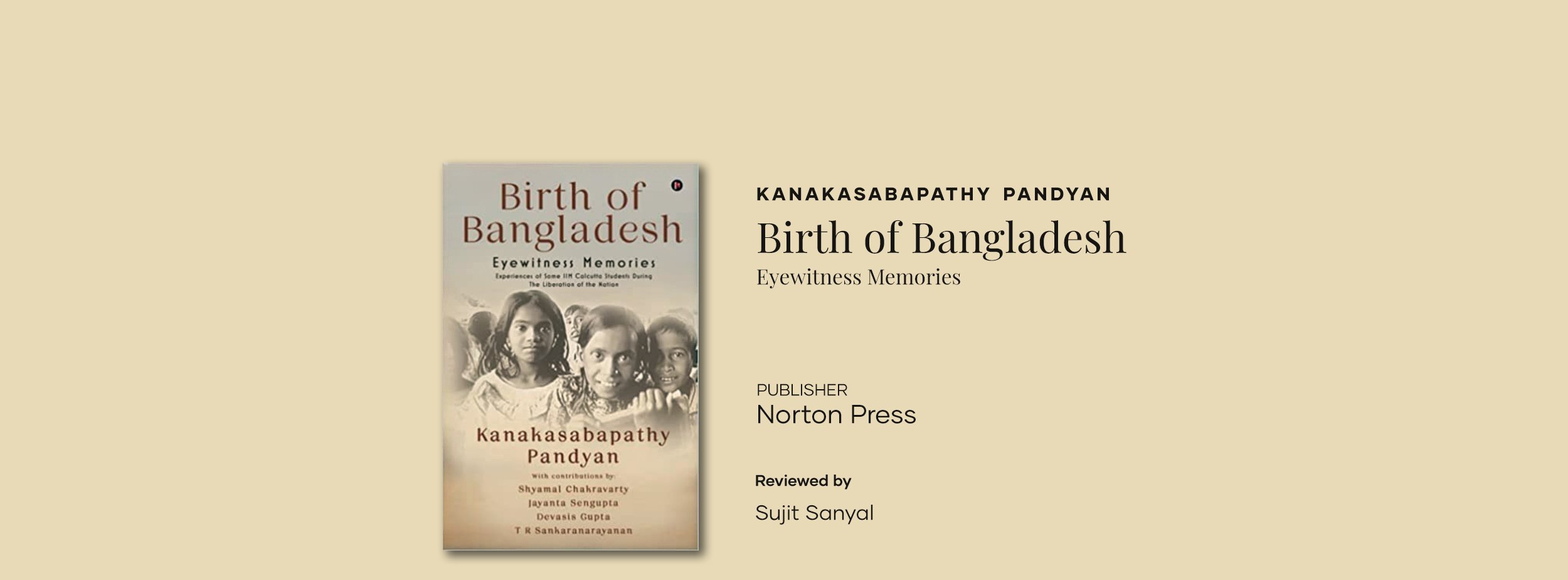
Published by Notion Press, this book is perhaps an unexpected gift on the 50th anniversary of the liberation of Bangladesh. On the 17th of December, 1971, the day after the surrender at Dhaka, four students of IIM-Kolkata, then located at Emerald Bowers, B T Road, Kolkata, set off to cross into Bangladesh, to see for themselves the situation in a war-ravaged country. They end up spending seven days in the new nation, traveling all the way to Dhaka by bus, boat, train, bullock cart, footing it through a terrain about which they knew nothing about. They listened and saw for themselves the horrors of the war, the destruction, deaths, poverty, gathering a first hand experience of a war zone.
The four students, Kanakasabapathy Pandyan, S Clement, Ganesh Aiyar and Shyamal Chakravarty (Ganesh and Clement have since passed away), who, charged with the euphoria and excitement that was sweeping through the nation decided to see for themselves, almost on a whim, what the hullabaloo was all about - and when at the gates of the institute, they did not even know which way they should go to cross over to Bangladesh!
This book transports you to revive the dream adventures all of us had, and realize that some people actually went through it. Traveling into the unknown, without any knowledge of locations, modes of transportation, even geography, dependent on just one fellow student who could speak Bangla, this indeed was an adventure of all times. While it has appropriately been published to link it with the Golden Jubilee of their IIM batch, it just as well coincided with the 50th Anniversary of Liberation of Bangladesh.
The four traveled from one spot to the other, without any knowledge how they would travel further. It was all a case of hits in the dark. They had some good one, including the chance hospitality of the Indian Army and even members of the Mukti Bahini. And then some where bad, being suspected of being Pakistanis and it took their only Bangla-speaking member to do the talking, to convince them that they were students of a “higher studies” institute. Or even bumping into a man who had just butchered a “traitor” (a traitor who was also responsible for the wiping out of his entire family).
Sadly, the worst of it all was reserved on their return to India!
The book is actually a human document about the people of Bangladesh. Their journey was enriched by the interactions they had with the local people, some suspicious, some friendly. Living on chiddey gur and “deem” (boiled eggs), sharing the food of the boatman - cold rice and fresh, almost raw ilish - and in another case, the “fan” of panta bhaat, it was indeed a most remarkable adventure. Importantly, it takes you back to the horrors of political greed, and the depths to which people can go to cause human suffering.
For those of us who were located in Kolkata in 1971 - and every citizen staying in the city was involved with the happenings from March 1971 onwards - the pages from the diary (each of the seven days has been documented day by day) will take us back in time, this time from the perspective of four young students. The book truly is a heart-touching narrative, as against a report by a journalist. Like watching a live documentary, frame by frame.
The book is a gift. It deserves a good read.
